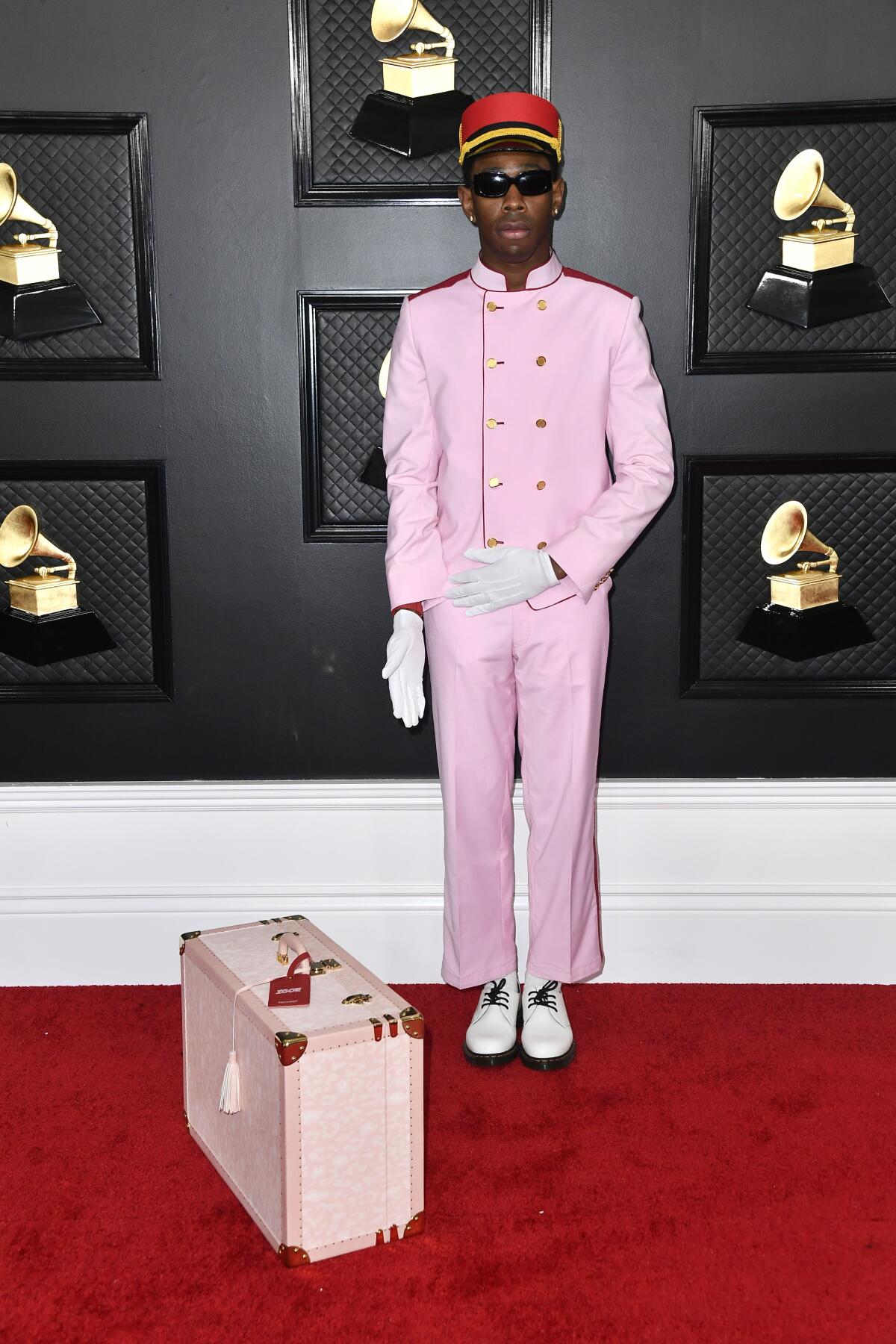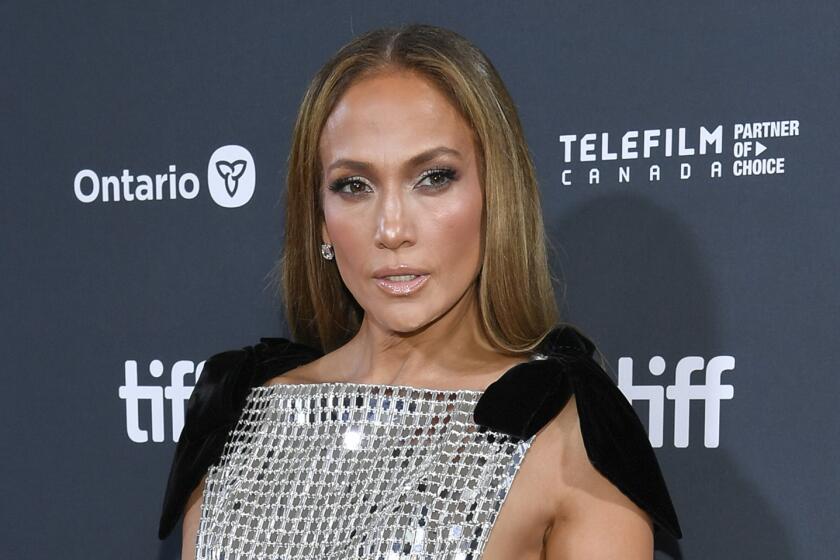Grammys, looking to shake boys’ club reputation, invites 2,300 new voters

More than 2,000 people in the music industry — half of them women and half of them under the age of 40 — have been invited to join the organization behind the Grammy Awards, which have been frequently criticized in recent years as a bastion of old-white-guy values.
The Recording Academy announced Thursday that it had offered membership to more than 2,300 “established music professionals from wide-ranging backgrounds, genres and disciplines” — a significant uptick from 2019, when approximately 1,300 musicians, technicians and executives were invited to join the academy.
In a statement, the academy said the new class of invitees is 48% female and 37% from “traditionally underrepresented communities,” including Black, Latino and Asian American people. That compares to a current membership of around 21,000 that the academy says is 26% female and 25% non-white.
“It’s really a new era for us and a time of transformative change,” Kelley Purcell, the academy’s senior director of member outreach, said in an interview. “It’s important for us to not only be reflective of what’s happening in the music industry but also to be a leader and to set a positive example for the music industry.”
Since Americana singer Margo Price recorded her new album in L.A., her husband contracted COVID-19, delaying the record’s release.
The effort to expand the academy’s ranks — which is being headed up by Purcell and the group’s first chief diversity and inclusion officer, Valeisha Butterfield Jones — comes after a bruising few months in which the organization was described by its former leader, Deborah Dugan, as perpetuating a toxic boys club culture.
Dugan, the academy’s first female chief executive, was ousted in an explosive scandal involving charges of discrimination and vote-rigging just weeks before January’s annual Grammys ceremony. Her interim replacement, Harvey Mason Jr., has said he’ll stay in the job at least through May, in part because the search for a permanent chief executive has been hampered by the COVID-19 pandemic.
In a dramatic speech at a well-attended party the night before the Grammys, the veteran producer and executive Sean “Diddy” Combs complained to a roomful of insiders that the academy had long disrespected Black musicians and gave the group a year — until the 2021 ceremony — to “get this s— together.” Other artists such as Drake, Frank Ocean and Tyler, the Creator have described what they view as the Grammys’ systemic marginalization of hip-hop and R&B.
Butterfield Jones, who took up her post in early May, said she welcomes the criticism.
“I believe that honesty and transparency is the only way that we’re going to build trust, drive change and do the necessary work,” said the executive, who formerly oversaw inclusion initiatives at Google.
The first official album from late Brooklyn rapper Pop Smoke features a dizzying array of guests that threaten to overwhelm his own formidable star power.
Butterfield Jones said the academy based its targets for the new class of invited members on U.S. demographic data but that it’s working to compile more specific information about the makeup of the music business, which is dominated creatively by people of color.
“The goal for us moving forward — and this is gonna take some time — is to reflect the available talent pool in the music industry,” she said.
New members were invited to join as part of what the academy calls its “community-driven and peer-reviewed membership model” in which hopefuls must submit two “strong recommendations” from peers in the business. And what about potential members who might not have raised their hands? Purcell said the group extends “supplemental invitations” to “make sure we’re reaching all qualified people even if they haven’t submitted.”
In 2018, according to Billboard, only about 20% of those invited actually joined the academy — one indication of the perception problem Combs referred to. Purcell said she couldn’t estimate how many of the new invitees would accept the academy’s invitation but added, “I’m just happy that the new member class signifies progress for us in terms of helping our membership demographics move forward.”
Asked about any resistance to those shifts among the academy’s old guard, Butterfield Jones said she hadn’t encountered any.
“In fact, I’ve been met with nothing but appetite, desire and motivation to change — and I mean that,” she said.
Yet Dugan voiced similar optimism before she was fired in what many have described as a culture clash.
In response, Butterfield pointed to a series of Grammys rule changes the academy announced last month (including its doing away with the controversial term “urban” in one category) as proof that it’s moving swiftly this time.
“I’ve done this work for 20 years, and I would not have joined [the academy], quite frankly, had I not seen the signals of an organization that’s ready for change,” she said. “I always follow the data.”
The new members have until Sept. 15 to accept their invitations if they want to take part in the voting process for next year’s Grammys ceremony, which Mason Jr. recently told The Times will take place on Jan. 31 in a form yet to be determined due to the pandemic.
More to Read
The biggest entertainment stories
Get our big stories about Hollywood, film, television, music, arts, culture and more right in your inbox as soon as they publish.
You may occasionally receive promotional content from the Los Angeles Times.











